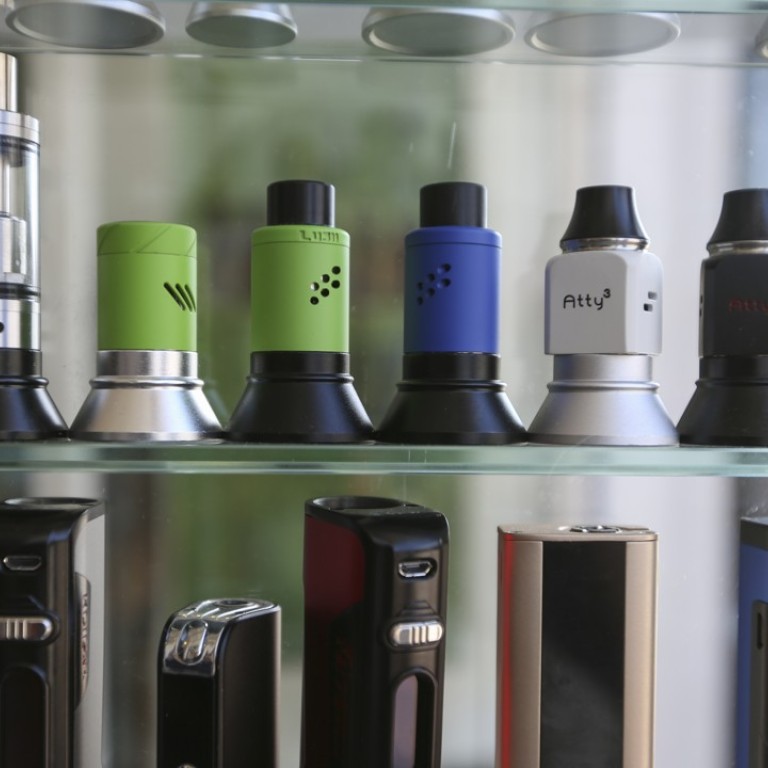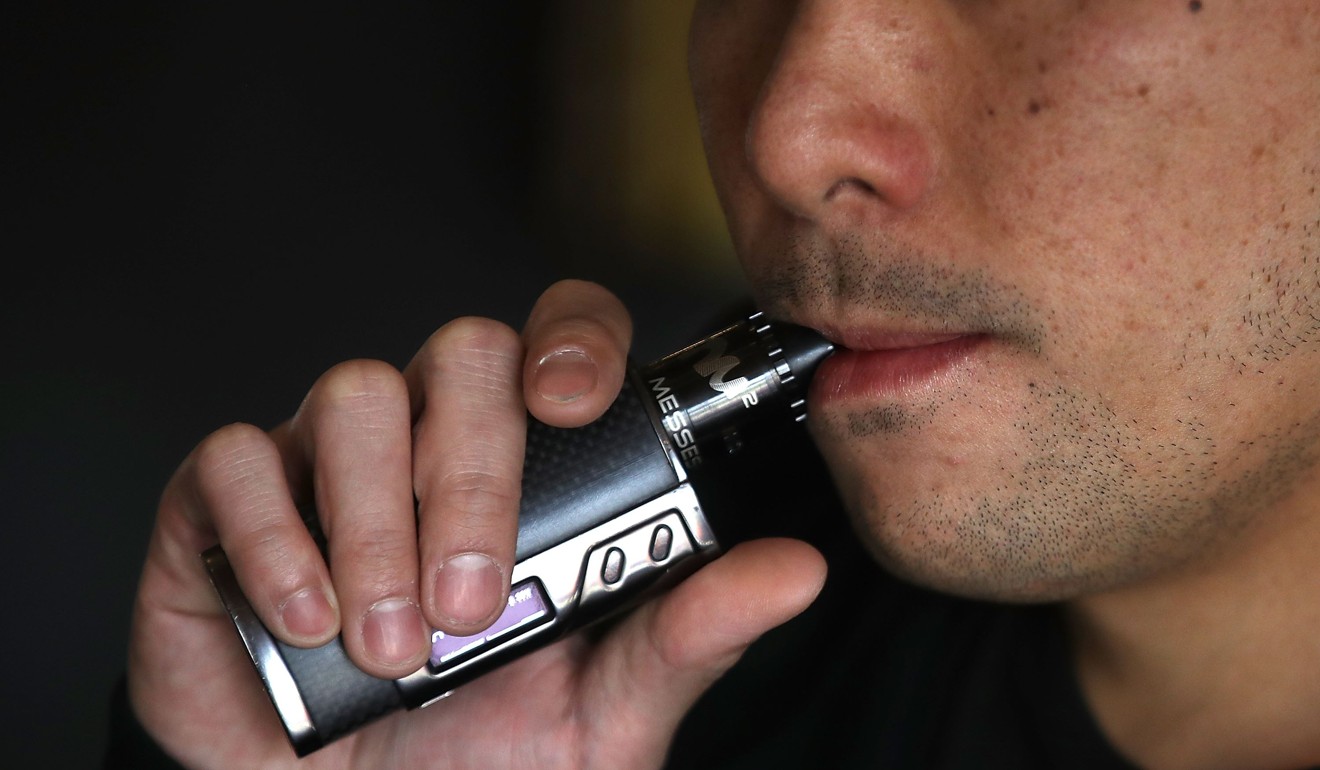
I used e-cigarettes to quit smoking after 10 years trying in vain to stop. Hong Kong’s ban is wrong
Peyton Chan was a smoker for 20 years. For 10 of those years he tried in vain to quit, and only succeeded when he switched to e-cigarettes. He thinks other smokers should have the chance to do the same
As a smoker for 20 years, the advent of electronic cigarettes was a boon for me. Like many heavy smokers who have tried to quit the highly addictive habit, I always succumbed in the end to my desire to light up again, especially when stressed at work or in the throes of personal setbacks.
During my 10-year struggle to stop smoking, the occasions that most tested my willpower were drinking sessions with business associates in China. Inebriated and surrounded by hard-partying men who swill glass after glass of alcohol, I was most vulnerable to a relapse.
Why Hong Kong should shun vaping: the risks aren’t fully understood yet
To my great surprise, my Sisyphean quest to quit tobacco became plain sailing when I switched to e-cigarettes six months ago.
Gradually, my nicotine urge subsided. A month ago I stopped vaping too, with none of the typical nicotine withdrawal symptoms such as irritability, poor concentration and weight gain.

I would never have believed that the price of saving my health from carcinogen-induced doom was just 409 yuan (US$59) – the cost of a vape pen – plus 100 yuan a month for e-smoking paraphernalia such as atomisers and smoking oils (less than the 1,000 yuan a month I used to spend on tobacco products).
My experience tells me the Hong Kong government’s move to ban e-cigarettes, announced by Chief Executive Carrie Lam Cheng Yuet-ngor in her policy address on October 10, is bad news for tobacco users eager to quit for the sake of their health. Lam said there would be a ban on e-cigarettes and other new tobacco products, such as heat-not-burn products and herbal cigarettes.
The move was unexpected; the government had previously proposed merely to restrict the sale of new tobacco products to minors, and to regulate the sale of vaping devices in the same way as it does conventional smoking products. In moving to ban e-cigarettes, Hong Kong joins countries including Thailand, Singapore and Uruguay.

In support of a ban, those countries cited a 2014 report by the World Health Organisation which said there was insufficient evidence that e-cigarettes help tobacco smokers give up, and that they encourage young e-cigarette smokers to experiment with different flavours. The WHO report said that while the products are less toxic than real cigarettes, they still pose a health risk.
Around the world, laws on vaping are evolving as new information comes out about its effects on health. Most governments, however, see e-cigarettes as an effective way for smokers to quit, something which potentially saves public health systems tremendous amounts of money they would otherwise spend treating smoking-related illnesses.
In the UK, health organisations including the Royal College of General Practitioners and the British Medical Association have endorsed e-cigarettes as a positive choice for smokers trying to quit.
In 2017, the National Health Service in Scotland issued a statement that e-cigarettes are definitely less harmful than smoking tobacco. New Zealand recently reversed its position on smoking nicotine e-cigarettes, saying evidence suggests it helps tobacco smokers quit.

Health officials and health advocates in Hong Kong have downplayed the benefits of smokers switching to e-cigarettes.
Secretary for Food and Health Sophia Chan Siu-chee said in June: “There’s no concrete proof on whether e-cigarette products contain less poisonous elements or whether [the ingestion of] less poisonous elements causes less harm to the human body.”
Are e-cigarettes all smoke and mirrors? One man’s quest for clean air
The same month, Antonio Kwong, chairman of the Hong Kong Council on Smoking and Health, said: “Some smokers may switch to these products instead of quitting smoking. No tobacco product is safe. Harmful chemicals were also found in e-cigarettes and other new tobacco products, bringing health risks to the public.”
In 2017, a long-term study funded by Cancer Research UK compared the exposure to toxins of tobacco smokers and former tobacco smokers who had switched to using e-cigarettes for an average of 16 months. It found large reductions in carcinogens and other toxic compounds in the latter group.

Research by Public Health England concluded that e-cigarettes are 95 per cent less harmful than normal cigarettes.
A survey conducted last year by UK anti-tobacco and public health advocacy group Action on Smoking and Health showed that more than half of the estimated 2.9 million people in the UK who use e-cigarettes had quit smoking tobacco.
Ban e-cigarettes, medical experts say after ‘shocking’ rise in child use
As for whether e-cigarettes can lead young users to become regular smokers, there is research that corroborates this notion and other studies that dispel it.
In 2017, citing data on 60,000 11- to 16-year-olds in the UK collected between 2015 and 2017, a Public Health England study found only between 0.1 per cent and 0.5 per cent of the sample who had not previously smoked became regular users of e-cigarettes after trying vaping.
In announcing an outright ban on e-cigarettes, the Hong Kong government is blocking a channel for habitual heavy smokers to wean themselves off a toxic and addictive habit.
Peyton Chan is a Hong Kong resident working in Beijing
